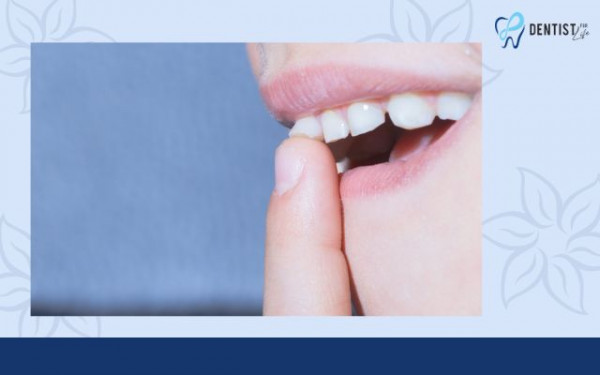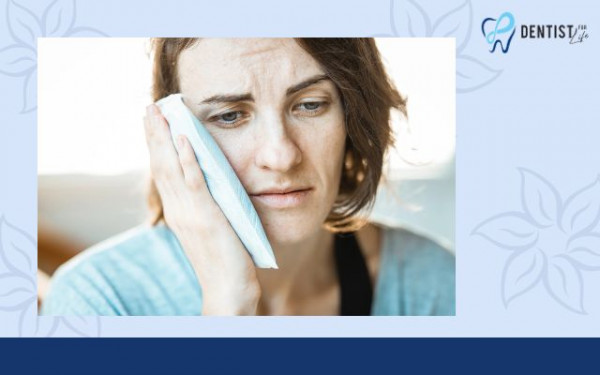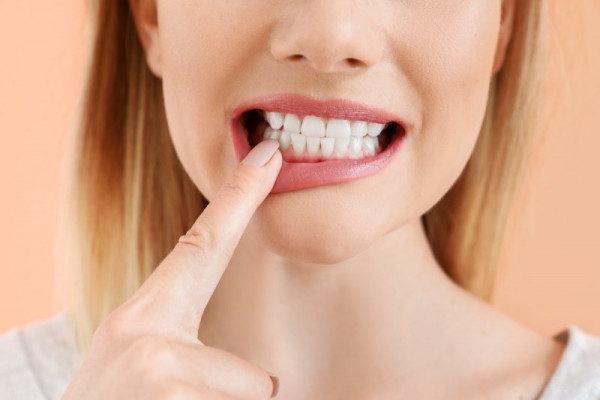If you have a loose tooth, it can be a very uncomfortable and concerning experience. Fortunately, there are some simple steps you can take to tighten a loose tooth at home. Firstly, make sure to brush and floss your teeth regularly to keep them healthy and strong.
Identifying Why Is Your Tooth Loose?
Maintaining good oral hygiene and health is essential. It is important for individuals to regularly monitor the condition of their gums and teeth. Ideally, everyone should take a few moments each day to inspect for any potential issues.
There are various causes of loose teeth in adults, and each may necessitate a specific treatment. However, it is best to leave the identification of these causes to professionals, as self-diagnosis is not recommended.

Gum Disease
Periodontitis, or gum disease, is a common dental issue characterized by gum infection and inflammation. Poor oral hygiene and neglect of dental health are the primary causes of this condition.
Inadequate brushing leads to the development of plaque and bad breath. Bacteria in plaque harden and adhere to teeth, forming tartar, which causes the gums to recede from the tooth. This results in insufficient support for the tooth, leading to its instability.
In addition to tartar, gum recession, and bone loss, symptoms of gum disease may include tender, swollen, or red gums, and changes in the way your teeth fit together. Seeking treatment from a periodontist early on can improve the chances of saving the affected teeth.
See more: Understanding Gum Recession: Causes, Symptoms, and Treatment
Injury
Injury is a common and apparent cause of loose adult teeth. Trauma from sports or car accidents can harm teeth and the surrounding tissue. Teeth clenching and grinding are also considered long-term forms of injury.
Prompt detection is crucial, and we provide dental emergency services for such cases. Assessing the situation as soon as possible enables us to identify the most appropriate solution for you.
Osteoporosis
Osteoporosis is a condition characterized by weakened bones, leading to porous bone mass and an increased risk of fractures from minor impacts. While commonly associated with older individuals, osteoporosis can affect a broad range of people, particularly women over the age of 50.
The disease primarily affects the spine, hips, and wrists but can also lead to deterioration of the jawbones. Fortunately, special drugs are available for the treatment of osteoporosis. However, it is worth noting that some prescribed medications may carry a heightened risk of gum disease.
If you have osteoporosis and are experiencing a loose tooth, please inform us of any medications you are taking during your visit to our office.
See more: Understanding the Stages of Tooth Extraction Healing
Pregnancy
Pregnancy, one of the most joyful times in a woman’s life, can also lead to loose teeth.
The increased levels of progesterone and estrogen during pregnancy can affect the tissue in the mouth, resulting in a loose tooth. These hormones can cause changes in the bones and ligaments that support the teeth, collectively known as the periodontium, which keeps teeth firmly in place.
Fortunately, these changes to the periodontium typically resolve themselves after childbirth. However, it is advisable to examine the loose tooth to rule out any other possible causes.
This home remedy to strengthen loose teeth

- Refrain from consuming hard foods and brushing your teeth vigorously, as doing so may exacerbate the issue.
- Alleviate inflammation by gargling with a warm water and salt solution. Utilize an interdental brush to eliminate plaque and clean your teeth.
- Consider stabilization splinting for a permanent tooth replacement, a technique employed by dentists to salvage loose teeth from extraction.
- Apply clove oil topically to the affected area for pain relief and anti-inflammatory benefits.
- Massage vitamin E oil onto your gums for its curative properties. Reduce bacterial growth in your mouth by rinsing with a mild antiseptic solution comprising hydrogen peroxide and clean water.
- It is important to note that rinses and other home remedies cannot rectify a condition that has persisted for an extended period.
Preventative Measures You Can Take to Avoid Losing Teeth
To prevent tooth loss, prioritizing dental care remains pivotal. While dental hygiene is foundational, incorporating additional measures ensures comprehensive oral health:
- Regular brushing of teeth.
- Ceasing smoking habits.
- Scheduling routine dental checkups.
- Maintaining adequate intake of vitamin D and calcium.
- Wearing a mouthguard during sports activities.
- Considering tooth splinting for nocturnal teeth grinding.
- Informing your dentist about any medications that may impact dental health.
See more: Discovering the True Teeth Whitening Cost: What You Need to Know
Contact a dental specialist in Ohio
At Dentist For Life in Ohio, we understand the concerns surrounding a loose tooth and the desire to address it at home. While home remedies might provide temporary relief, it’s crucial to seek professional dental care for a lasting solution. Our experienced team is equipped with the expertise and resources to evaluate the root cause of the problem and provide tailored treatment options.
We prioritize your comfort and oral health, ensuring that loose teeth receive the necessary care to prevent further complications. Schedule a consultation with Dentist For Life today, where our comprehensive approach and commitment to quality care will guide you toward a confident, healthy smile.



